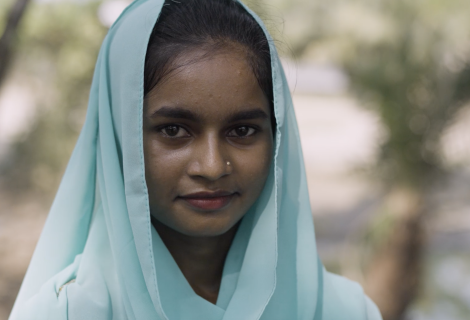How skyrocketing prices are taking a toll on young women’s health: Meem’s story

In a world facing an unprecedented cost of living crisis, local communities in the Global South are again bearing the burden of severe price rises for essentials such as food, fuel, and fertilizer.
Even before the invasion of Ukraine, communities across the world were grappling with the far-reaching effects of the COVID-19 pandemic. In 2020, a year that tested the resilience of so many, food security surged to alarming levels surpassing the previous five years combined. Then in 2022, the invasion of Ukraine resulted in even sharper rises of food, fuel, and fertilizer prices as the war impacted supplies from both Russia and Ukraine, which are among the world’s top exporters of these products. Our research released in May 2022 in the report “Doubly Devastating” revealed that local communities were paying double, triple, or even close to four times what they had been paying for food, fuel, and fertilizer before the war began.
Now, ActionAid’s new and more detailed research has found that families are spending up to nine times what they paid almost 18 months ago for food, fuel, and fertilizer. While global prices have dropped by 11.7% since February 2022, our research finds that prices in local communities in the Global South have increased to crisis levels.
In Bangladesh, women and girls especially are grappling with a multitude of new challenges due to the severe price rises. As the cost of sanitary pads has increased by an average 83%, women and girls have been forced to use alternatives that not only jeopardize their health but also compromise their feminine hygiene.
“Floods, droughts, and saltwater issues are very common in Southern Bangladesh. Saltwater usage [for our own hygiene] is harmful to our health, but we don’t have any other choice right now. Sanitary pads are the healthiest method and it’s the only thing that should be used during periods. We’ve not been able to use [them] during our periods due to the price hikes.”
Meem Akhter Lamia, a student in the remote village of Kolpara located in the southern region of Bangladesh, sheds light on a particularly pressing issue faced by women in her community: the rising prices of sanitary pads. With the cost of essential items beyond their reach, women are forced to resort to using pieces of cloth:
“At home we use a piece of cloth instead of pads. This method is not sanitary at all. We have to wash and clean these cloths with salt water. It is very harmful to our bodies.”
The lack of access to proper menstrual hygiene products leaves women vulnerable to various health issues. The community relies on a small clinic to help with the skin diseases that can arise from the use of improper products. However, the clinic has limited resources and urgently needs more support and supplies to serve people in the community who can't afford to make the long journey to the nearest hospital. Meem speaks about the urgency of the situation:
“The rich may get away with price hikes, but the poor will struggle. Something has to be done, or society will suffer a lot.”
The poorest people are facing the brunt of skyrocketing food, fuel, and fertilizer prices, with women and girls hit the hardest. 57% of women surveyed in Bangladesh for this study said that they are now in debt because of the price rises. All in all, the effects of multiple crises are reducing women and girls' access to food and education and increasing occurrences of child marriage and gender-based violence. Together, these negative impacts have taken a massive toll on women and girls' mental health.
To address these intertwined crises and their disproportionate impact on women and girls, ActionAid is advocating for a holistic approach and adequate funding that tackles all interconnected crises exacerbating the price crisis, which include climate change, debt stress, the COVID-19 pandemic, and the profound repercussions of the Russian invasion of Ukraine.
Read our latest report and recommendations here.
Read about other women in Bangladesh experiencing the impacts of the price rise crisis:
- The ripple effects of rising prices and the climate crisis: Shazida’s story
- Farming her way out of the price rise crisis: Rina’s story
- From floods to financial strain: Liza’s journey through the climate crisis and price rises